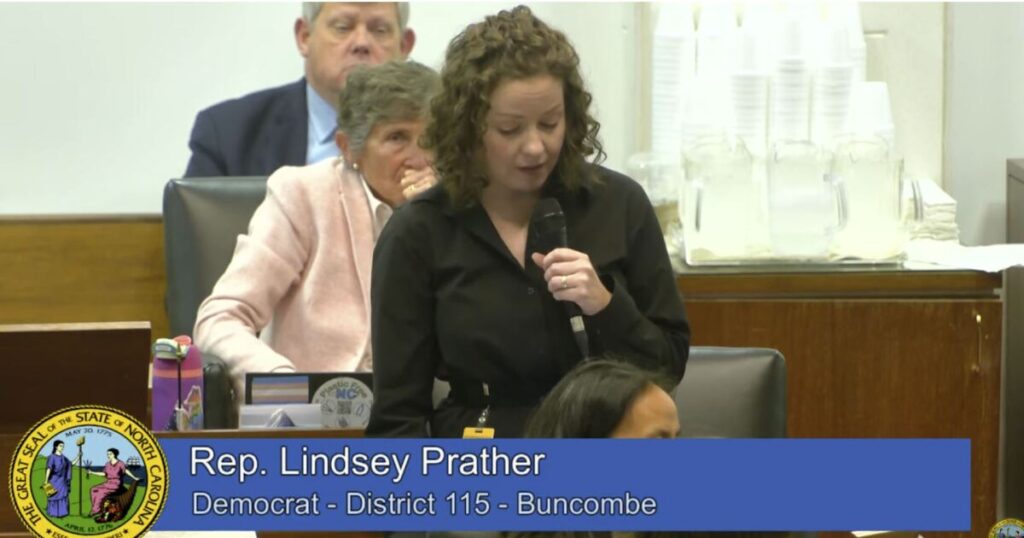North Carolina Disaster Recovery Bill Overridden Despite Opposition
After a contentious battle, the North Carolina House has joined the Senate in overriding Governor Roy Cooper’s veto of the state’s “disaster recovery” bill. The bill, which did not allocate direct funding to Western North Carolina residents impacted by Hurricane Helene, has sparked debates and criticisms among legislators and constituents alike.
Controversial Allocation of Funds
The bill allocated $227 million for Hurricane Helene recovery, but the funds will be placed in a reserve that will only become accessible after future appropriation. Critics argue that this approach fails to provide immediate relief to the 25 counties severely affected by the hurricane, leading to accusations of political maneuvering.
Legislators’ Responses
Representatives from Western North Carolina, such as Republican Mark Pless, expressed mixed sentiments about the bill. While disappointed with the lack of specific aid, Pless acknowledged the need to move forward and assist the region. On the other hand, Democratic representatives Eric Ager and Lindsey Prather emphasized the urgency for more substantial support for Western North Carolina, citing ongoing struggles faced by local businesses and residents.
Community Outcry and Advocacy
Protests and chants echoed through the legislative session, with the North Carolina Association of Educators leading a phone campaign urging community members to oppose the bill. Bryan Proffit, NCAE’s vice president, highlighted concerns about the bill’s impact on teachers and changes to elected officials’ powers, calling it undemocratic and contrary to voters’ intentions.
Impact on Education and Power Structures
The bill’s provisions, including compensating teachers for missed work days and altering the authorities of elected leaders like State Superintendent-elect Mo Green, have raised questions about the bill’s broader implications. Critics argue that the changes undermine the democratic process and go against voters’ wishes.
Future Federal Assistance
Despite the bill’s controversies, House Speaker-Designate Destin Hall defended the state’s response to Hurricane Helene, noting that significant federal funding is on the horizon. He reiterated that the state has already allocated substantial resources to the affected region and emphasized the need for efficient and effective relief efforts moving forward.
In the wake of Hurricane Helene, North Carolina is grappling with the aftermath and the significant financial burden it has brought upon the state. The state legislature recently passed a bill allocating $227 million for Helene recovery, bringing the total state funding for the region to $1.1 billion. However, this money will be held in a fund that cannot be accessed until a future session appropriates it.
Speaker of the House, Destin Hall, emphasized the crucial role of the federal government in aiding the recovery efforts, citing the estimated $53 billion in damages incurred from the storm. Hall stated, “We’ve got every indication that help is on the way and on the way very soon, probably by Christmas, by the end of this month and we anticipate getting maybe $25 billion.”
Governor Cooper’s announcement on December 7 revealed that the Biden administration has agreed to cover 90% of public assistance, hazard mitigation, and other needs assistance, up from the typical 75% federal coverage. This increased federal cost share will enable state funds to stretch further and expedite recovery and hazard mitigation projects in 2025.
The Office of State Budget and Management disclosed that the cost of Hurricane Helene is now estimated to be $58 billion, surpassing the previously reported $53 billion. This revised figure highlights the extensive financial implications of the storm and underscores the urgent need for federal support in rebuilding and assisting affected communities in North Carolina.





